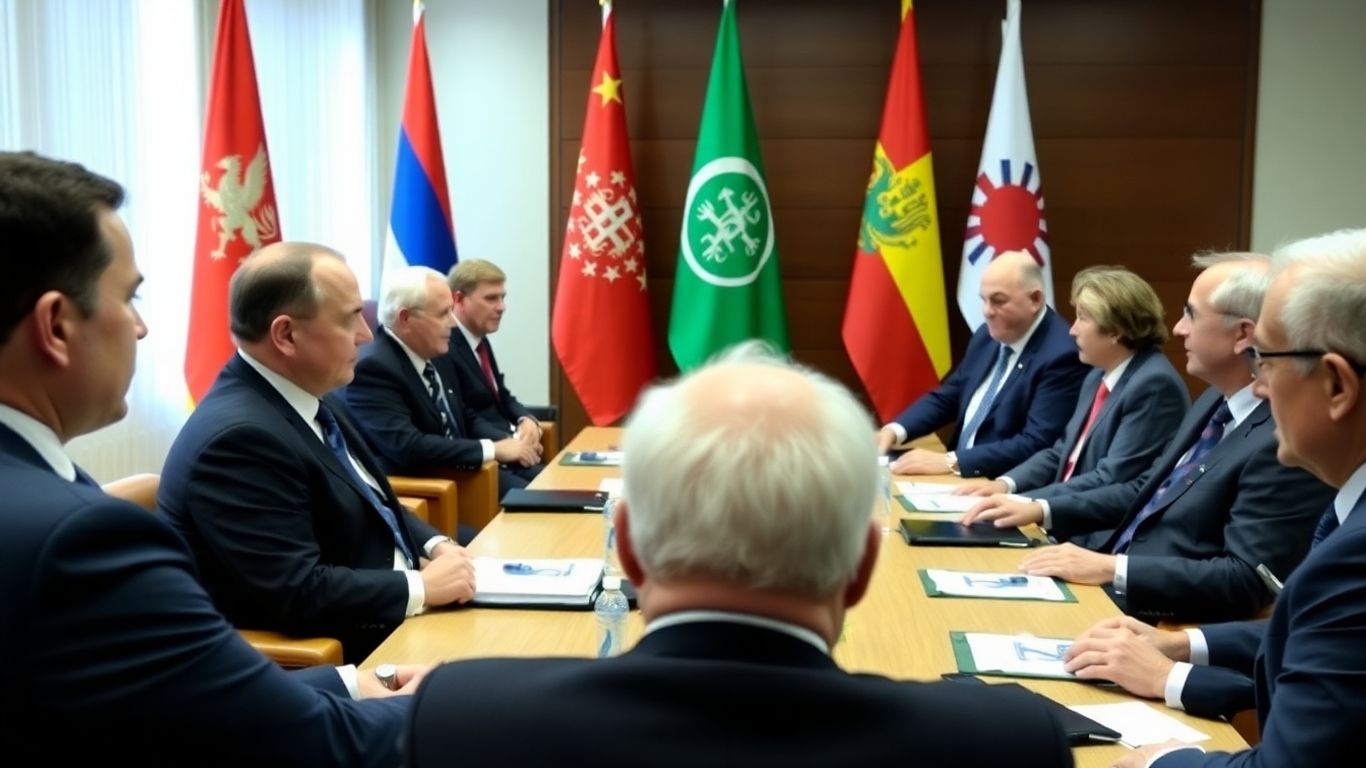Leaders from six Western Balkan nations gathered in London for crucial talks with British and European officials, focusing on pressing issues of migration, security, and economic development. The summit, part of the ongoing Berlin Process, aims to bolster the region’s path toward European Union membership amidst heightened geopolitical tensions and Russian influence.
Key Takeaways
- Western Balkan nations are seeking closer ties with the EU, but face stalled progress and regional tensions.
- The UK is prioritizing efforts to curb unauthorized migration and combat interference from Moscow.
- Montenegro is actively requesting EU support to counter Russian disinformation campaigns.
Summit Focus: Migration and Security
Delegations from Albania, Bosnia, Kosovo, Montenegro, North Macedonia, and Serbia convened in London for discussions centered on migration, security, and economic growth. The summit, hosted by the UK as part of the Berlin Process, aims to re-energize the region’s EU accession efforts. Progress for these nations has largely stalled since Croatia’s accession in 2013, with recent flare-ups in tensions between Serbia and Kosovo.
The war in Ukraine has spurred renewed interest in EU enlargement, but concerns linger about the potential spillover of the conflict into the Western Balkans, a region still recovering from its own past conflicts. The UK, despite its departure from the EU, is actively engaged in addressing these challenges.
Tackling Migration and Interference
Prime Minister Keir Starmer’s government is keen on making headway in combating the drug trade, strengthening the region’s defenses against Russian interference, and, a key British priority, curbing irregular migration. The Western Balkans have become a significant transit route for migrants heading to the EU, with Britain noting that a quarter of Channel-crossing migrants have passed through the region.
The UK has been working with Albania on a joint task force that has reportedly reduced Albanian migrant numbers reaching the UK. Britain is also exploring the possibility of establishing "return hubs" for rejected asylum-seekers, though leaders from Albania and Montenegro have expressed reservations about hosting such facilities on their soil. Montenegro’s Prime Minister, Milojko Spajic, indicated a potential willingness to host a hub if accompanied by substantial investment in the country’s railway infrastructure.
Montenegro’s Plea Against Russian Meddling
Montenegro’s President, Jakov Milatović, specifically appealed to the EU for increased support in combating Russian disinformation. He described the battle against "malign influence from third countries" as a "daily" challenge that poses a risk to Montenegro’s EU accession bid. Milatović expressed a desire for the EU to be more proactive in countering such threats, noting that pro-European politicians in the region sometimes feel unsupported by their EU partners.
Montenegro, which aims for EU membership by 2028, has been a target for disinformation campaigns seeking to disrupt its progress. Milatović has been in discussions with EU policymakers, drawing parallels with Moldova’s experience and the EU’s deployment of a cyber reserve to combat similar issues there. He emphasized the need for the EU to demonstrate that enlargement is a viable and rewarding process, especially after a decade without new members and the UK’s departure.
Sources
- Western Balkans leaders meet in London for talks on migration and security, ABC News – Breaking News, Latest News and Videos.
- Montenegro asks EU for help fighting Russian meddling – POLITICO, POLITICO.eu.






